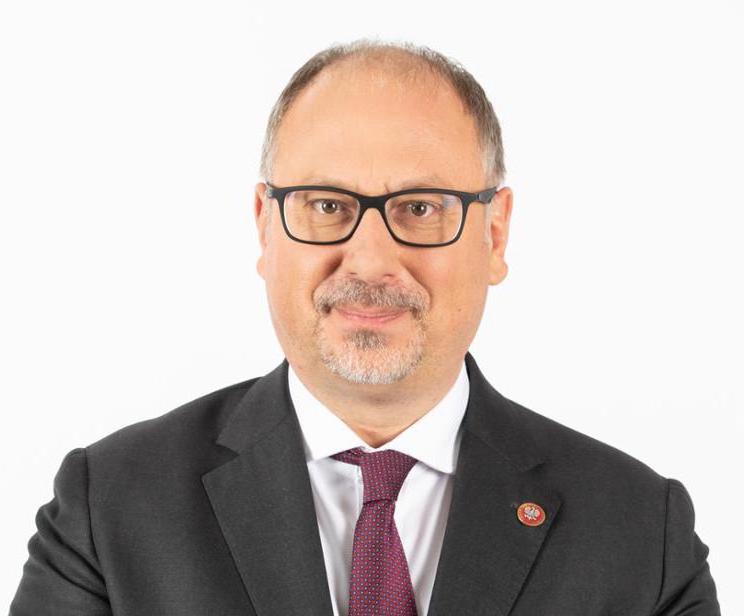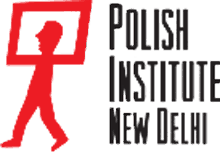Freedom and solidarity in the Polish DNA– an article by Prof. Arkady Rzegocki

Prof. Arkady RZEGOCKI
Head of The Foreign Service, political scientist and professor at the Jagiellonian University.
Freedom and solidarity in the Polish DNA
In May, let us all celebrate Polishness – both Poles and friends of Poland.
In May, like no other month of the year, important dates for our history and present come together. On May 3, 232 years ago, the Polish Parliament passed the first Constitution on the European continent. It gave expression to Polish aspirations, but also to the strength and power of the great Serenissima Res Publica Poloniae. This year in May we are also celebrating the accession to Western structures, which irreversibly changed Poland’s place on mental geographical maps – 19 years ago Poland joined the European Union, and before that NATO. These two May dates – the adoption of the Constitution and joining the West – tie up the framework of Poland’s heritage – a history of decline, but also of rebirth.
Polish Heritage Days is a celebration throughout the month of May. Celebrating the great freedom achievements of the Polish-Lithuanian Commonwealth, celebrating the restoration of independence, celebrating the fall of communism, and celebrating the Polish economic leap of the last 30 years.
This year is the seventh time we express our joy in Polishness by celebrating Polish Heritage Days. The aim of Polish Heritage Days is to celebrate and promote Polish culture, the heritage of past generations and the Polish contribution to cultural, economic and social life. This year, the Polish Heritage Days under the patronage of Witold Pilecki, the guiding slogan to be celebrated is “Poland. Solidarity for Freedom”. Freedom and Solidarity, like no other values, constitute Polishness, which we have clearly seen expressed over the past year and a half. Freedom and solidarity are at the core of who we are as Poles.
The Polish principle of freedom has been a constitutive value of the Polish Republic for centuries. The Jagiellonian state and the Polish-Lithuanian Commonwealth began to equip citizens with a catalogue of freedoms and civil rights unparalleled in the West. When absolutism reigned in France, the Polish nobility elected the king. When the West waged religious wars, the parliament of the Republic introduced the Act of Warsaw Confederation, which legally guaranteed the freedom to practise all religions (John Lock’s groundbreaking “Letter on Toleration” was published more than a century later). The standard of the rule of law, guaranteeing personal inviolability and the prohibition of arrest without the permission of the court, was introduced in the Republic by the privilege of Jedleński as early as 1433.
The Polish gene of freedom was not eradicated, despite the strenuous attempts, even by the Partitions – the November Uprising and the January Uprising, whose round 160th anniversary we are celebrating this year, are the best examples.
The Polish attachment to the idea of freedom was particularly evident in the 20th century – during the Second World War it manifested itself in the fight against totalitarianism – in the construction of the Polish Underground State – phenomenal in Europe, in the uprisings in the Warsaw Ghetto and later in the capital of Warsaw. The desire for freedom and democracy materialised most fully in Solidarity, which led to thefall of communism in Poland in 1989. The Polish traditions of freedom, parliament and democracy are undoubtedly unique. Importantly, they are common to the entire region of today’s Central and Eastern Europe.
Therefore, today, when the war in Ukraine casts a shadow over Europe’s peaceful efforts and its security architecture, the celebration of solidarity and freedom, takes on a special significance. In the light of the war in Ukraine, a brutal and unprovoked Russian aggression, the motto of freedom and solidarity should be on the lips of all those who support our friends in Kiev.
Polish Heritage Days are an invitation not only to all Poles in Poland and abroad, but also to all friends of Poland regardless of their nationality. With the support of Polish diplomatic missions, dozens of free events are organised – from exhibitions to open-air events to concerts. Other countries also join in the joint celebrations – May is Polish Heritage Month in Ontario, Canada’s largest province.
As Head of the Polish Foreign Service, I am certain that all Polish citizens can promote Poland, often most effectively those living outside their homeland. Let us therefore seize this opportunity and, on the occasion of Polish Heritage Days, invite our friends and colleagues to celebrate together – for example by wearing a red and white ribbon. Let the whole of May be in red and white and let’s celebrate a common heritage of freedom and solidarity!
Arkady Rzegocki
Published in cooperation with the Polish monthly “Wszystko co Najważniejsze” as part of a historical project run jointly with the Institute of National Remembrance and the Polish National Foundation.
Foto INM



